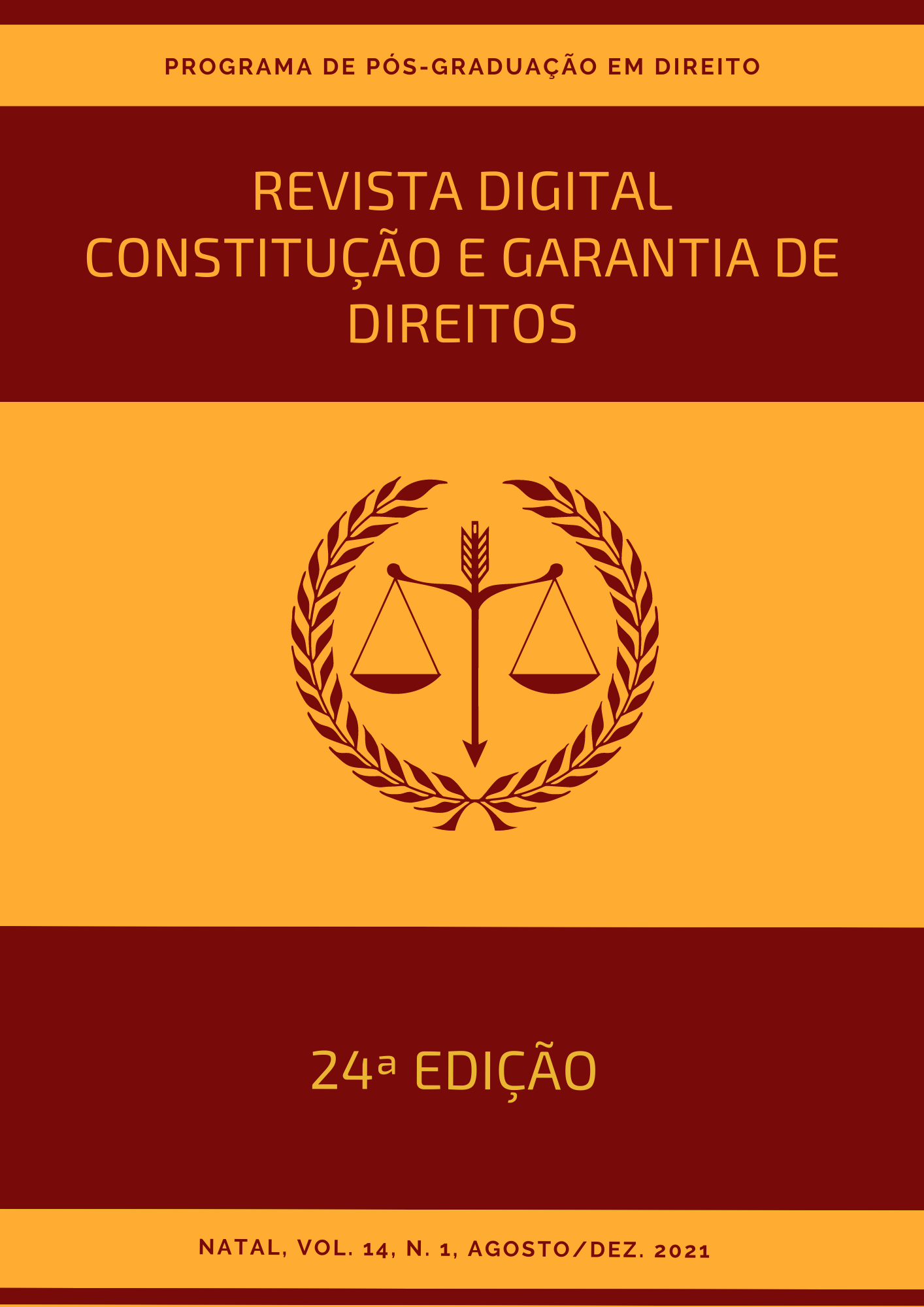ENTRE AS POLÍTICAS AFIRMATIVAS E AS POLÍTICAS PARA AFIRMAÇÃO DE DIREITOS:
O EXEMPLO DA POLÍTICA NACIONAL DE TRABALHO NO ÂMBITO DO SISTEMA PRISIONAL - PNAT
DOI:
https://doi.org/10.21680/1982-310X.2021v14n1ID24935Abstract
This article promotes an assessment of the role of affirmative actions in homeland law based on contextualized observation within the scope of a focal policy: National Labor Policy within the scope of the Brazilian Prison System. Through the review of interdisciplinary literature associated with documentary research, the location of the topic is promoted within the analytical context of reflections on the minimum effect of the fundamental right to work of the person deprived of liberty. Observing affirmative policies as an instrument for the realization of rights to vulnerable social groups, in a critical-dialectical examination, this discussion aims to establish a vertical analysis on the contemporary use of affirmative policies in order to highlight their legitimate and illegitimate purposes. In this bias, considering that within the paradigm of constitutionalism of effectiveness there is the substantiation of rights as a precondition for the legal and social realization of the Democratic State, as a result, a refinement of the treatment of the theme is presented based on the establishment of criteria for the evaluation of public policies based on their categorization between affirmative policies and rights affirmation policies.
Downloads
Downloads
Published
How to Cite
Issue
Section
License
Copyright (c) 2022 Revista Digital Constituição e Garantia de Direitos

This work is licensed under a Creative Commons Attribution-NonCommercial-ShareAlike 4.0 International License.
Autores mantêm os direitos autorais pelo seu artigo. Entretanto, repassam direitos de primeira publicação à revista. Em contrapartida, a revista pode transferir os direitos autorais, permitindo uso do artigo para fins não- comerciais, incluindo direito de enviar o trabalho para outras bases de dados ou meios de publicação.





